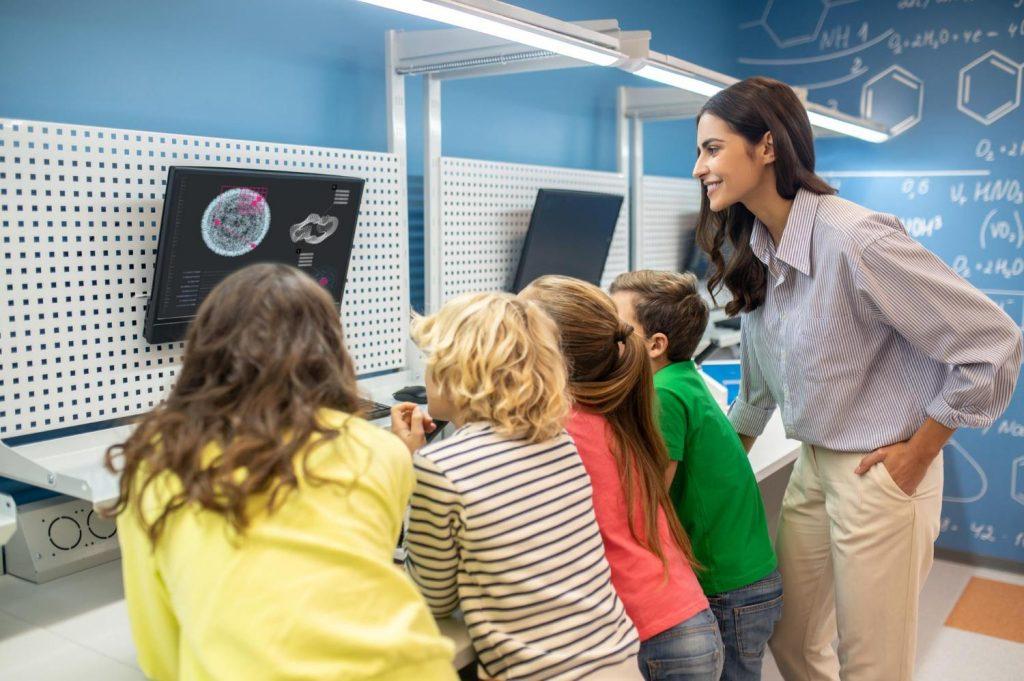AI and the Future of Educational Research: Transforming Learning Insights and Outcomes
Introduction: A New Era in Educational Research
The swift evolution of artificial intelligence (AI) is reshaping the landscape of modern education. from personalized learning platforms to data-driven decision-making, AI is now at the heart of educational innovation. As schools, universities, and researchers seek more effective ways to improve student outcomes and generate actionable educational insights, AI in educational research emerges as a key driver of progress. In this article, we delve into how AI is transforming research in education, the myriad benefits it offers, real-world case studies, practical tips for implementation, and what the future holds for AI-powered educational research.
How AI Is Reshaping Educational Research
AI technologies—such as machine learning, natural language processing, and predictive analytics—are rapidly advancing the methodologies and outcomes of educational research. Here’s how AI is making a significant impact:
- Automated Data analysis: With AI, researchers can automatically analyze vast datasets, uncovering patterns and correlations that were previously hidden or too complex to identify manually.
- Personalized Learning Insights: AI assesses individual student learning trajectories, enabling personalized feedback and recommendations that cater to each learner’s needs.
- Predictive Modeling: Educational researchers use AI to forecast student performance, retention rates, and more, allowing for proactive interventions.
- Natural Language Processing (NLP): AI-powered NLP tools can analyze qualitative data—like open-ended survey responses or discussion boards—at scale, extracting themes and sentiments efficiently.
- Enhanced Assessment Methods: AI introduces adaptive testing, instant grading, and feedback, considerably reducing the administrative burden on educators and researchers.
The integration of AI in educational research not only boosts efficiency but also opens the door to more innovative, evidence-based approaches to teaching and learning.
Key Benefits of AI in Educational Research
-
Scalable Data Collection and Analysis:
AI enables researchers to work with large-scale data from various sources such as learning management systems, standardized tests, and real-time classroom interactions.
-
Enhanced Accuracy and Objectivity:
Machine learning algorithms minimize human bias, providing more objective, reproducible results.
-
quicker Research Cycles:
AI automates many research tasks—like coding qualitative data or running complex statistical analyses—which speeds up the research process and leads to faster insights.
-
Personalized Interventions:
By identifying at-risk students or ineffective teaching methods early, AI helps educators intervene with targeted support, driving improved learning outcomes.
-
Dynamic Feedback Loops:
AI systems provide continuous, real-time feedback, allowing for ongoing adjustments to teaching strategies and curriculum development.
Real-World Case Studies: AI Impacting Educational Research
Case Study 1: Predicting Student Dropout rates
At a large university, researchers used AI-powered predictive analytics to analyze student engagement, exam results, and attendance records. The AI system accurately identified students at risk of dropping out, enabling advisors to implement support strategies. Consequently, the university saw a 15% reduction in dropout rates within a single academic year.
Case Study 2: adaptive learning for K-12 Students
A state-wide K-12 school district adopted AI-driven adaptive learning platforms in mathematics classrooms. The AI personalized the sequence and difficulty of instructional content, responding to each student’s learning pace. Teachers reported improved test scores,greater student engagement,and more efficient classroom management thanks to detailed AI-generated insights.
case Study 3: Analyzing Classroom Interactions with NLP
Education researchers applied NLP algorithms to analyze thousands of student responses in online discussion forums. The AI identified key themes, student sentiment, and participation trends, enabling researchers to refine discussion prompts and instructors to facilitate more meaningful classroom dialogues.
practical Tips for Integrating AI in Educational Research
- Establish Clear Research Objectives: Define what you want to achieve with AI and select the right tools for your specific research questions.
- Ensure Ethical AI Use: Adhere to best practices on data privacy, informed consent, and algorithmic transparency to maintain trust and compliance.
- Collaborate Across Disciplines: Work with data scientists, educators, and IT professionals to bridge technological and pedagogical perspectives.
- Regularly Validate AI Models: Continuously test and refine AI algorithms using real-world data to ensure accuracy and reliability.
- Invest in Training: Provide ongoing professional development for educators and researchers to effectively use and interpret AI-based tools.
Challenges and Considerations
While the benefits of AI in educational research are extensive, there are also challenges to consider:
- Data Privacy and Security: Protecting student information is crucial, requiring secure storage and responsible data handling practices.
- Bias in AI Algorithms: If AI models are trained on unrepresentative or biased data, they can perpetuate inequities.
- Access and Equity: Ensuring all schools and researchers have access to AI tools is essential to prevent widening the digital divide.
- Human Expertise: AI should augment—not replace—the expertise of educators and researchers. Critical thinking remains essential in interpreting AI-generated insights.
The Future of AI in Educational Research
As AI technology continues to advance, its influence on the future of educational research will only deepen:
- Deeper Personalization: AI will power hyper-personalized learning journeys, offering resources and support tailored to each student’s interests, strengths, and areas for growth.
- real-Time Learning Analytics: near-instant assessment and feedback loops will become the norm,fostering more adaptive learning environments.
- AI-Powered Policy Insights: Policymakers will use AI analyses to shape education strategies that address inequities and improve results at scale.
- Collaborative Human-AI Partnerships: Teachers, researchers, and AI systems will increasingly collaborate, leveraging each other’s strengths for the benefit of student learning.
As these trends unfold, AI stands to transform educational research into a more dynamic, informed, and impactful domain—revolutionizing how learning insights are generated and applied.
Conclusion: Embracing Change for Better Learning Outcomes
AI and the future of educational research are closely intertwined. From automating data analysis to personalizing educational interventions, AI is not just a tool but a transformative force for learning. By navigating challenges thoughtfully and embracing innovative practices,educational institutions and researchers can unlock deeper insights and drive better learning outcomes for all.
The journey is just beginning—by staying informed and proactive, you can ensure your educational community is ready to leverage the full potential of artificial intelligence in educational research.

